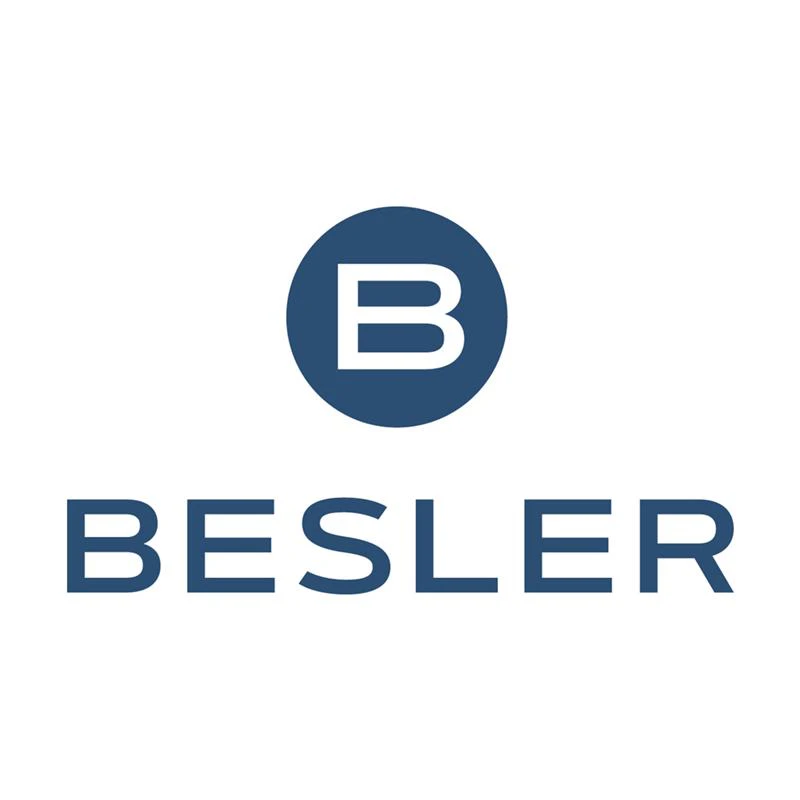Legal/legislative battles affecting the 340B Program
The dispute between safety-net hospitals and drug manufacturers has officially entered its fourth year, and we continue to see additional manufacturers fall in line with revising their policies to restrict 340B Program pricing for drugs dispensed through contract pharmacies.
Nov 4, 2024
Nov 4, 2024

The dispute between safety-net hospitals and drug manufacturers has officially entered its fourth year, and we continue to see additional manufacturers fall in line with revising their policies to restrict 340B Program pricing for drugs dispensed through contract pharmacies.
Currently, there are 39 drug manufacturers that have imposed distribution limitations on covered outpatient drugs dispensed through the 340B Program:
As a response to the restrictions, there are nine states that have passed legislation to prohibit drug companies from restricting access to 340B Program pricing through contract pharmacies (Arkansas, Delaware, Kansas, Louisiana, Maryland, Minnesota, Mississippi, Missouri, and West Virginia) and three states where 340B contract pharmacy legislation is pending (Massachusetts, Michigan, and Ohio). Below is a summary of the current state of the legal and legislative battles affecting the 340B Program.
Manufacturer updates
July 17: Mallinckrodt becomes the 38th manufacturer to impose 340B contract pharmacy restrictions
- Per a Mallinckrodt communication dated July 8: “Effective July 17, 2024, Mallinckrodt’s specialty distributor for Acthar, FFF Enterprises, Inc. (FFF), will ship Acthar exclusively to locations registered in the 340B OPAIS database as a covered entity or a child site location, or as a contract pharmacy location subject to the parameters set forth.” Mallinckrodt will permit hospital covered entities to designate a single contract pharmacy location to receive bill to/ship to Acthar orders. The designated contract pharmacy location must be a part of Mallinckrodt’s limited distribution network for Acthar, which currently includes CVS, Walgreens Alliance Rx, OptumRx, Senderra, Humana, Alivia (Puerto Rico), Kaiser, and Accredo.
Aug. 1: Merck and GSK update contract pharmacy policies
- Merck updated the list of states that do not need to comply with its contract pharmacy policy limiting access to 340B Program pricing to include Minnesota (effective Aug. 1, 2024) and Missouri (effective Aug. 28, 2024). Per a communication dated Aug. 1, “Merck will voluntarily honor 340B discounts and chargebacks for contract pharmacy transactions for hospital and CH covered entities, provided the hospital or CH covered entity registers and submits 340B claims data for all claims originating from their contract pharmacies through Merck’s vendor, Second Sight Solutions.” Effective Aug. 1, 2024, GSK will allow Minnesota covered entities to place bill to/ship to replenishment orders through an unlimited number of contract pharmacies located in Minnesota.
Aug. 23: Johnson & Johnson institutes 340B rebate model for DSH covered entities
- Per a communication dated Aug. 23, “As of October 15, 2024, JJHCS shall make the 340B discount on STELARA and XARELTO available to DSH Covered Entities through a rebate. To operationalize this rebate model, JJHCS is utilizing the Beacon platform.” Disproportionate Share Hospital (DSH) covered entities will not be allowed to purchase Stelara or Xarelto at the340B Program price, but instead they will be able to buy these drugs at wholesaler acquisition cost and submit rebate claim data to the Beacon platform following the dispensing or administration of Stelara or Xarelto to eligible patients. Per communication from Johnson & Johnson, “The Beacon platform will validate the Rebate Claim Data submitted by a DSH Covered Entity to ensure that purchases were made by an eligible DSH Covered Entity, units were dispensed from eligible 340B locations, and Rebate Claim Data was submitted in a timely manner.”
Sept. 19: AstraZeneca imposes further restrictions on accessing 340B Program pricing
- Per a communication from AstraZeneca dated Sept. 9, “Effective October 1, 2024, AstraZeneca will begin mandating the submission of claims data on 340B utilizations filled at contract pharmacies. All specified claims data must be submitted on the 340B ESP™ platform within 45 days of the dispense date. This requirement applies to covered entities, without an in-house pharmacy that have designated a single contract pharmacy via the 3408 ESP™ platform.”
Sept. 17: HRSA threatens Johnson & Johnson over 340B rebate model for DSH covered entities
- The Health Resources and Services Administration (HRSA) sent communication to Johnson & Johnson regarding its letter dated Aug. 23, in which J&J stated, “As of October 15, 2024, JJHCS shall make the 340B discount on STELARA and XARELTO available to DSH Covered Entities through a rebate.” In its communication to J&J, HRSA stated, “The Secretary has not “provided” that the rebates described in J&J’s notice should be “taken into account” in the “amount required to be paid” for Stelara and Xarelto by disproportionate share hospitals. If J&J implements its rebate proposal without Secretarial approval, it will violate Section 340B(a)(1) of the Public Health Service (PHS) Act.” The letter concludes, “HRSA expects J&J to cease implementation of its rebate proposal immediately and to inform HRSA no later than September 30, 2024, in order to provide adequate notice to covered entities.”
Sept. 30: J&J backs off on 340B rebate model for DSH covered entities
- In response to HRSA’s letter denouncing its new rebate model, J&J announced it will cease implementation of a 340B rebate model for DSH hospitals intended to begin in October 2024. Following the J&J communication making the 340B discount on STELARA and XARELTO available to DSH covered entities through a rebate, HRSA threatened to cut off Medicaid and Medicare coverage for J&J drugs. In communication to HRSA, J&J indicated it would continue to engage with the government on ways to increase 340B Program transparency.
Oct. 1: Karyopharm Therapeutics becomes the 39th manufacturer to impose 340B contract pharmacy restrictions
- Karyopharm communicated that starting Oct. 1, it would no longer accept 340B replenishment orders for its drug Xpovio dispensed prior to Aug. 1, 2024. Karyopharm announced it would limit 340B contract pharmacy replenishment orders to 60 days from the date the pharmacy dispensed Xpovio to an eligible patient. In addition, Karyopharm noted that it may require covered entities to submit certain claims data for selected replenishments.
Legislative updates
July 11: Missouri Enacts 340B contract pharmacy protection law
- Missouri became the eighth state to enact a law protecting covered entities’ access to 340B pricing on drugs dispensed at contract pharmacies. Similar statutes have been enacted in Arkansas, Kansas, Louisiana, Maryland, Minnesota, Mississippi, and West Virginia, which resulted in changes in manufacturers’ policies to restrict access to 340B pricing. The Missouri law states, “Entities specified in the act shall not restrict acquisition or delivery of 340B drugs to pharmacies that are under contract with a covered entity to receive and dispense 340B drugs on behalf of the covered entity.”
Sept. 17: Federal appeals court rules in favor of manufacturers
- A federal appeals court in Washington, D.C., entered final judgments based on four joint motions that attorneys representing the U.S. Department of Health and Human Services filed with the drug companies Amgen, Boehringer Ingelheim, Merck, and UCB. The final judgements ruled in favor of the pharmaceutical companies by concluding that the HRSA enforcement letters were unlawful and that the 340B statute does not prohibit drug manufacturers from imposing conditions on the distribution of 340B drugs. However, the court concluded that such conditions may violate the 340B statute when applied in particular circumstances. Such circumstances could include an increase in the cost of a 340B drug above the ceiling price or the inability to purchase a 340B drug because a covered entity cannot comply with a specific manufacturer's condition.
Sept. 19: Delaware enacts 340B nondiscrimination protections
- Delaware joined other states to enact a law prohibiting discriminatory reimbursement for 340B drugs. The Delaware law “prohibits discrimination against 340B drug distribution by manufacturers, third-party logistics providers, and wholesale distributors.” In addition, the law states, “A pharmacy benefits manager or purchaser may not discriminate, either directly or indirectly, against a covered entity or the covered entity’s contracted pharmacy on the basis of its participation in the 340B program, including providing a reimbursement rate for a 340B drug that is less than the national average drug acquisition cost rate for that drug as determined by the United States Centers for Medicare and Medicaid Services, measured at the time the drug is administered or dispensed, or if no such rate is available at that time, a reimbursement rate that is less than the wholesale acquisition cost of the drug.”
Sept. 20: CMS finalizes plan to require unique IDs for Medicaid MCOs
- The Centers for Medicare & Medicaid Services finalized a requirement for Medicaid managed care (MCO) organizations to assign unique identifiers that will make it easier for covered entities and pharmacies to identify claims under Medicaid managed care. In the final rule, “Misclassification of Drugs, Program Administration and Program Integrity Updates Under the Medicaid Drug Rebate Program,” CMS finalized the requirement to assign unique beneficiary identification numbers, processor control numbers, and group number identifiers for MCOs. The documentation of the BIN, PCN, and group ID identifiers will be required on beneficiary identification cards for pharmacy benefits. This rule takes effect Nov. 19, but MCOs will be given additional time to implement the new identifiers based on the next rating period for Medicaid MCO contracts.
Sept. 30: Federal appeals court upholds Louisiana contract pharmacy law
- The U.S. District Court for the Western District of Louisiana upheld Louisiana’s’ Act 358 against a constitutional challenge brought by AbbVie, AstraZeneca, and the Pharmaceutical Research and Manufacturers of America. The ruling states that the federal 340B statute does not reference contract pharmacies, and therefore the state’s actions to regulate the delivery of drugs through such contract pharmacy arrangements does not interfere on the federal government’s 340B enforcement responsibilities.
Considerations
- Engage internal and/or external legal counsel to assess legal implications of each manufacturer’s exception policy and the risks associated with sharing data with manufacturers. Assess prescription claims data to determine the impact of these manufacturers’ limited distribution models on your 340B Program savings over the past year.
- File overcharge notices with HRSA for manufacturers who charge more than the ceiling price for a covered outpatient drug. Apexus has provided a template for submitting overcharges, which can be found here.
- Continue advocacy and education efforts around how your covered entity is meeting the true intent of the 340B Program by using savings generated from purchasing discounted drugs to provide comprehensive care to more patients within your community.
- Help raise awareness of the financial impact to your organization from drug company restrictions on contract pharmacies by sharing financial impact data with your elected officials in Washington. Urge them to push for an end to these drug company actions.
- Use social media platforms and/or consider working with your local media to create an opinion piece from your organization regarding the impact manufacturer actions have had on prescription drug savings and your organization’s ability to serve patients. Correlate how patient care and healthcare service offerings are impacted by 340B benefit loss.
Please reach out to Susan Brankin if you have questions or if Kodiak can assist you as you work through the information noted in this newsletter.
Contact Us
Want the latest updates from Kodiak?
Get access to our communications, including our Healthcare Connection newsletter, to tap into industry trends, CPE webinars, and more.



